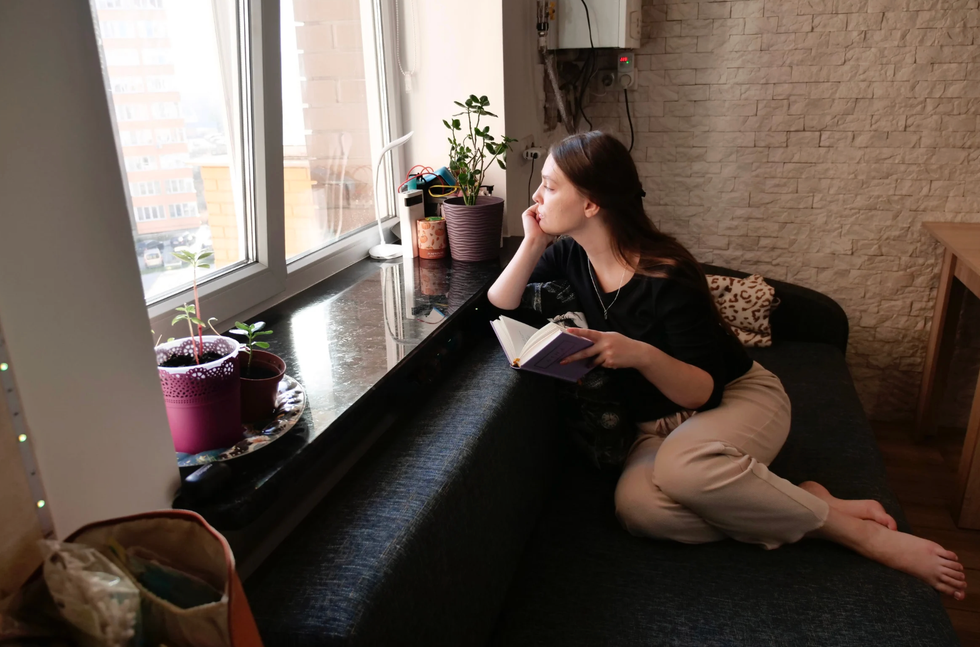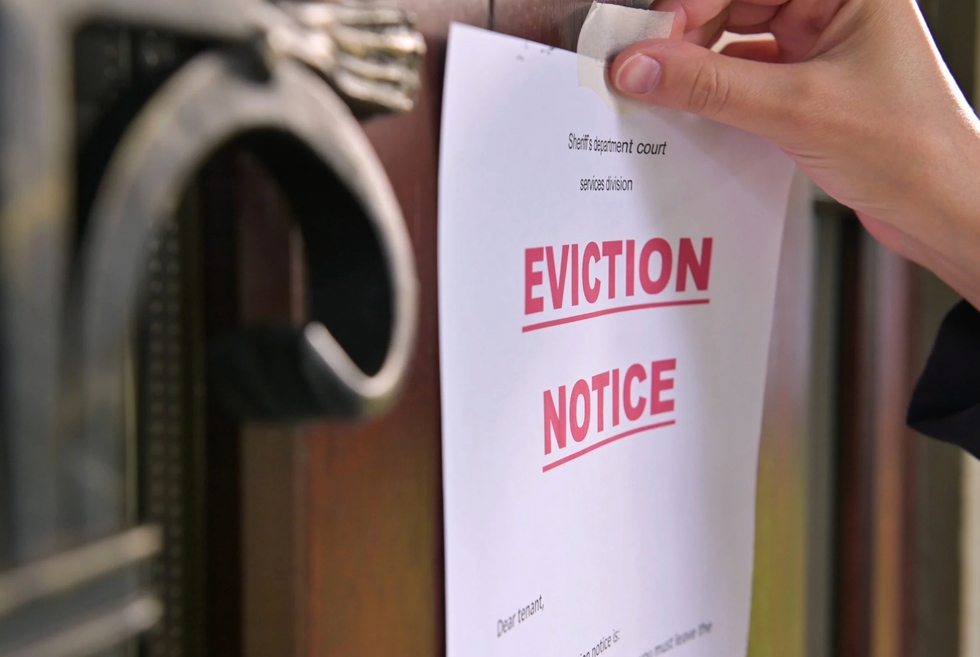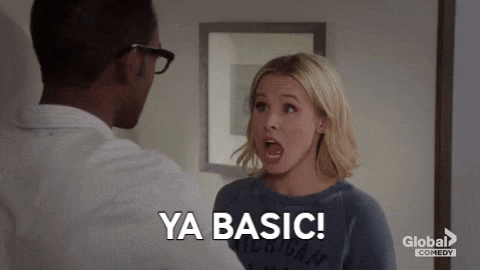There’s a startling moment in one of the first episodes of Pivot’s new 10-part documentary series Truth and Power when a Moroccan journalist discovers that her government has been tracking her every move online: “Being watched all the time is ... as aggressive as being beaten, or having things yanked right out of your hands. It’s the same feeling,” she says. Watching the show is enough to make anyone just as paranoid, with episode after episode revealing that any of us could be subjected to similar intrusions at any moment, right here in America.
Executive produced by documentarian Brian Knappenberger, Truth and Power follows ordinary citizens as they challenge corporate exploitation and infringement on civil liberties resulting from government overreach in the internet age. After humanizing the hacktivists of Anonymous in We Are Legion (2012), then capturing the maddening story of programming prodigy and “internet freedom martyr” Aaron Swartz in The Internet’s Own Boy (2014), Knappenberger has earned a reputation as a fierce defender of those who use the internet as a tool of creativity, expression, and revolution over surveillance and control.
GOOD spoke with Knappenberger about the show, his passion for digital disobedience, and why he remains optimistic about the fight for digital freedom—even in the face of corporate cover-ups, legal loopholes, and creepy advances in surveillance technology.
A lot of your subjects are working to disrupt systems they see as broken. What draws you to them?
Our lives are very different than they were 15 years ago. So-called traditional, constitutional values like civil rights, human rights—they have to suture themselves into our modern world. How does the Fourth Amendment—you know, the protection against searches of our personal effects from our government—work when the NSA can simply search all of our communications? What counts as speech?
I’m attracted to people who are fighting those battles in an intense way. People who are just ahead of where the rest of society is going to be. Hackers and Anonymous at their best. Certainly Aaron Swartz was way ahead of the curve. In the film, we had a lot of archival footage of Aaron talking about mass suspicion of surveillance and the NSA and you look at the date, and it was years before Snowden came forward. Swartz just didn’t get to live to see that moment.
Do you believe “hacktivists” like Anonymous are behaving righteously or ethically, even if they aren’t on the right side of the law?
Sometimes Anonymous behaves righteously and sometimes they behave like lunatics. It’s both. Social media is being used to organize groups like Black Lives Matter; it’s also being used by governments to surveil groups like Black Lives Matter.
[quote position="full" is_quote="true"]Sometimes Anonymous behaves righteously and sometimes they behave like lunatics.[/quote]
Most of the people I’ve dealt with are law-abiding, though they brush up close to the law. Some actively break it. You know, that’s what civil disobedience is, breaking the law in direct protest to make a statement that the law is wrong. I don’t condone law breaking by any means, but certainly lots of social movements have accomplished great things because they’ve done it.
Protesters throughout history have shut down street corners or freeways, and they’d get caught for that. It’s illegal. Online, you could point to DDOS (distributed denial of service) attacks—taking down a website—as making a similar political point. The difference is that you don’t get a $250 ticket and a night in jail if you do that. You get 10 years in jail.
But it’s not that DDOS attacks shouldn’t be illegal—if you’re taking down a website in protest, you’re prohibiting that person’s free speech. Even if it’s something you don’t like, free speech also covers people you disagree with. Especially people you disagree with.
It’s so complicated.
We Are Legion is filled with a lot of people who disagree with each other. And they’re not always the most savory characters, right? But they have a unifying passion for participating in rigorous discussion that I think is inspiring. Aaron was certainly that way—actively engaged, turning his back on the riches of Silicon Valley. Clearly, he could have had a huge, lucrative career. But instead he did things like make tools for protest, or to help you directly contact your congressperson, or he fought battles like SOPA and PIPA. With these kinds of subjects, there’s an underlying notion that you can change things in society simply by showing up.
Getting people to show up—would you say that’s your goal for Truth and Power?
I think that is one of the goals. By following these underdogs fighting abuses of power, we also get a broader understanding of bigger issues. A weird thing with the internet is that we thought, early on, that it was going to broaden communications, create greater transparency in government and all of that. And some of that has come true. But our government has also become vastly more secretive.
Can you talk more about that?
One of our episodes talks about the Freedom of Information Act (FOIA) system and how it’s broken. People often have to sue the government in order to find out very simple things about what’s going on. The government has an instinct to classify information, and it hurts us as the public, because how do you participate in a democracy unless you know what’s going on? Presumably, if we know more, we can vote more accurately.
So is the fight for transparency a bigger deal right now, given that it’s an election year?
Absolutely. I think it’s important, for instance, that we know who’s supporting our candidates, and where does the dark money come from? There’s a famous [Bill Moyers] quote—“Secrecy is the freedom tyrants dream of.” And it’s true. The less we know about what’s happening, the less we can be outraged about it, and the less we can have an informed discussion about it.
How is our relationship to both privacy and secrecy changing?
I think we could be entering a new world where we are less private individuals than we used to be, and more of our lives are lived in public. And that’s okay. But the decisions about who has access to our private information, or where it’s sold, shouldn’t be made for us. And the government—how are they interpreting the Fourth Amendment? We realized through Edward Snowden that they were interpreting it in bizarre ways. They basically said, “Well, we can collect all of this information because we’re not looking at it. We’re just storing it.” That’s a pretty radical view that they never discussed with us.
We might be scared of terrorism, or criminals. So scared that we’re willing to give up some constitutional protections. But we shouldn’t do it without at least talking about it. As technology moves forward, privacy will shift more. Things will get creepier, or some of it will seem creepy but it will actually be okay, and we’ll adapt to it. But I think the real answer is that privacy is endlessly shifting in an age when almost all of our information is being processed or stored by somebody.
Even if we trust that somebody with our information, it may not be secure, and we’re seeing breaches all the time [at private companies] … In an episode about consumer privacy, we touch on how the FBI doesn’t like encryption. They’ve always argued, going back to the ’90s, that they should have what they refer to as a “secure” back door—an easy way to get into all of the devices and databases. But there’s just no way to do that, because eventually, a criminal will find that back door. This debate goes back awhile, but is really strong right now, particularly after the attacks in Paris and San Bernardino.
Talking to you, you seem more even-keeled than I expected. It might be my personal reaction to the outrages explored in your work, but I sense great urgency and anger in your investigations. I can’t tell—do you think things are getting better or worse?
They’re definitely getting weirder. One thing that’s getting worse is inequality. There’s no question that powerful people are getting more powerful. And, as demonstrated by a recent study out of Princeton, that means we’re not even a democracy.
But I’m optimistic about things, too. New technology is a double-edged sword. It’s used by Black Lives Matter, Occupy, Anonymous, or people with their cellphones and social media exposing the police. The powers that be incorporate and co-opt that stuff, too. But that means the revolutionaries have to deal with that, and come up with something new and more innovative next time.
[quote position="full" is_quote="true"]People who feel frustrated and angry often just back out of the political system. That’s the end of democracy.[/quote]
For me, it’s a battle over information. A battle about knowing what’s happening, exploring where things are being hidden, where rights are being eroded. Finding that stuff out and bringing it to the forefront.
You have a team of investigators at your disposal, though. Do you have suggestions for the average citizen?
In one of the episodes, we follow a guy who, in the early days of the internet, tried to create a Do Not Track list. It was surprising, the forces that arrayed against him and that fairly simple notion. Advertising companies and other groups went after him and really tried to kind of personally hurt him, going after his position at Stanford and calling him colorful cuss words in the press. But we could have had a very different internet.
What’s so surprising about that now is just the volume of companies that are following you on each site. You can use different tools to see who’s watching you. And when you do that, you notice even with the simplest sort of news story, maybe there’s 80 or 90 people [or organizations] tracking you. But for anyone worried about surveillance or just nefarious folks, there are tools like TOR and other encrypted communications tools. Since Snowden, there’s been a bit of a renaissance of really smart people coming up with these solutions.
The average citizen just needs to actually be informed about the work of the people who are in the trenches, filing endless FOIA requests, trying to separate the signal from the noise of the internet. Just be engaged. You’re battling apathy more than anything. People who feel frustrated and angry often just back out of the political system. That backing out is the end of democracy. The sense that you can’t do anything—that’s the problem. But you still can! You can still protest. Be loud. Make your voice heard.

















 Tow truck towing a car in its bedCanva
Tow truck towing a car in its bedCanva  Sad woman looks at her phoneCanva
Sad woman looks at her phoneCanva  A group of young people at a house partyCanva
A group of young people at a house partyCanva  Fed-up woman gif
Fed-up woman gif Police show up at a house party
Police show up at a house party 
 A trendy restaurant in the middle of the dayCanva
A trendy restaurant in the middle of the dayCanva A reserved table at a restaurantCanva
A reserved table at a restaurantCanva Gif of Tim Robinson asking "What?' via
Gif of Tim Robinson asking "What?' via 

 An octopus floating in the oceanCanva
An octopus floating in the oceanCanva


 A woman relaxes with a book at homeCanva
A woman relaxes with a book at homeCanva An eviction notice is being attached to a doorCanva
An eviction notice is being attached to a doorCanva Gif of Kristen Bell saying 'Ya basic!' via
Gif of Kristen Bell saying 'Ya basic!' via